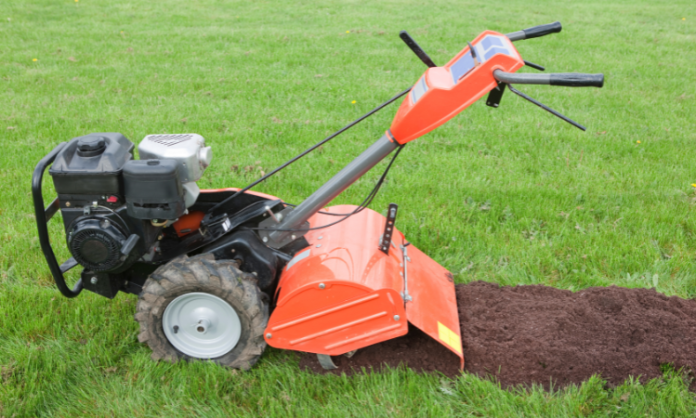
Table of Contents
Power tillers are agricultural machines that play a crucial role in modern agriculture by mechanizing various tasks involved in land preparation and cultivation. These machines are versatile, cost-effective, and have revolutionized farming practices, especially in small and marginal farms. Here’s an overview of power tiller technology in agriculture:
Definition and Purpose:
- A power tiller is a compact, two-wheeled or four-wheeled tractor-like machine equipped with a powerful engine and various attachments.
- Its primary purpose is to perform various agricultural operations, including plowing, harrowing, planting, weeding, and transportation of farm produce.
Components of a Power Tiller:
Engine: Power tillers are typically equipped with single-cylinder, diesel or petrol engines, which provide the necessary power for driving the machine and operating the attached implements.
Transmission: They have a simple gearbox and transmission system to control speed and power to the wheels.
PTO (Power Take-Off): Power tillers have a PTO shaft that can be used to connect various implements like rotavators, seeders, and pumps.
Wheels: Depending on the model, they may have two or four wheels, with adjustable track width for different types of terrain.
Attachments: Various implements like plows, harrows, cultivators, and seed drills can be attached to a power tiller to perform specific tasks.
Advantages:
Increased Productivity: Power tillers significantly reduce manual labor and increase the efficiency of land preparation and cultivation.
Versatility: They can be used for various tasks by changing attachments, making them suitable for different stages of crop cultivation.
Cost-Effective: Power tillers are cost-effective compared to larger tractors, making them accessible to small and marginal farmers.
Time Savings: Farm operations can be completed faster with power tillers, which is especially valuable during critical phases of crop cultivation.
Crop Suitability:
- Power tillers are well-suited for various crops, including rice, wheat, maize, sugarcane, vegetables, and more.
- They are particularly effective in regions with small landholdings and labor scarcity.
Maintenance:
- Regular maintenance of the engine, transmission, and attachments is essential to ensure the longevity and optimal performance of a power tiller.
- Adequate lubrication, cleaning, and occasional servicing are necessary.
Environmental Considerations:
- Modern power tillers are designed to be more fuel-efficient and emit fewer pollutants compared to older models.
- Their efficiency reduces the need for multiple passes over the field, which can help conserve fuel and reduce greenhouse gas emissions.
Training and Skill:
- Proper training is crucial for operators to use power tillers effectively and safely.
- Knowledge of soil conditions, depth of tillage, and attachment selection is essential for optimal results.
Power tiller technology has played a significant role in modernizing agriculture, especially in regions with small and marginal landholdings. It enhances productivity, reduces labor dependency, and contributes to food security by making farming more efficient and cost-effective. However, proper training and maintenance are essential to maximize the benefits of this technology.
Related Articles:
5G Technology : Revolutionizing the Way We Connect and Communicate
























